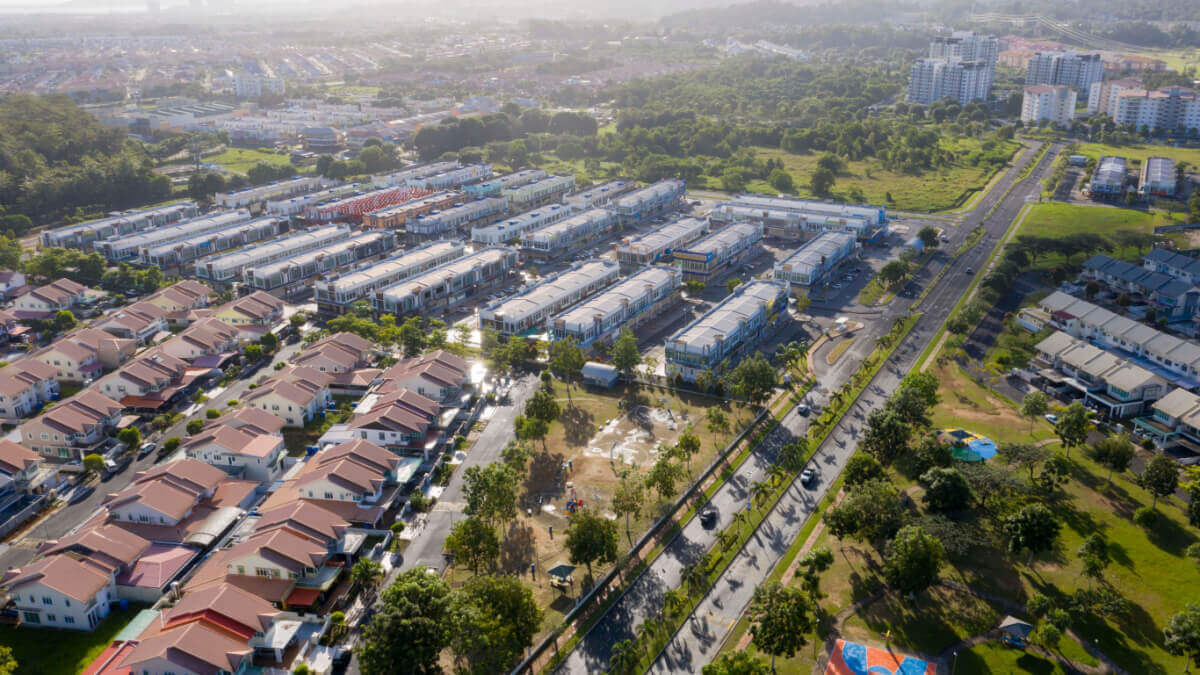
Buying property in Malaysia: what Singaporeans need to know?
This giveaway is only valid for customers in Singapore, Malaysia, Australia (except South Australia, Australia Capital Territory, Northern Territory), New Zealand, UK and US.
Considering buying a property in Malaysia as an investment, a place to live or a holiday home? This article focuses on buying Malaysian property as a Singaporean, and the specific issues you might need to know about.
Looking for a general guide to buying property in Malaysia? Get all you need to know about the Malaysian property market, processes to buy a property in Malaysia, and Malaysian costs and taxes, in our full guide to buying a property in Malaysia.
Can Singaporeans buy property in Malaysia?
Let’s look at the most important question first - as a Singaporean can you buy a Malaysia home, and what types of property or land are available?
The good news is that there are relatively few restrictions from the Malaysian side. Foreigners in general are able to buy homes in Malaysia, and even land in some cases. There are a few limits in place to ensure property supply and pricing remains accessible to Malaysians, but these still leave scope to buy a home in Malaysia as a Singaporean. In broad terms the only places that are off limits according to Malay laws are¹:
- Low and mid-cost properties - these limits are set by state
- Properties built on land reserved for Malays
- Properties allocated to Bumiputera groups
However, as a Singaporean you’ll also need to consider any restrictions in place on our side of the causeway. More on that next.
Are there limitations to what Singaporeans can buy?
As we’ve discovered there are few Malaysian laws to restrict what you can buy as a Singaporean. However, there are other local considerations - especially if you own an HDB property yourself.
The first thing to ensure if you own an HDB is that you’ve fulfilled the Minimum Occupancy Conditions (MOC), which can mean living in the property for 5, 7, 10 or even 20 years². During this time, you’re not allowed to buy another private property, which would take the option to invest in Malaysia off the table. It’s also important to note that the MOC starts when you get your keys, and doesn’t take into account any period when you’re not living in the HDB - during a period of working abroad, for example.
Can I take a home loan in Malaysia?
Depending on where you intend to buy property in Malaysia, you’ll find a minimum value requirement, which may mean that as a foreigner you can only purchase properties valued at over 1 million MYR (around 315,000 SGD). This minimum value requirement does vary by state, so shopping around may be a good idea if you’re looking for a good deal.
However, there’s a good chance that you’ll need to finance your home purchase with a loan. Singaporeans can apply for a home loan in Malaysia, as there are no specific restrictions on foreigners taking a mortgage. Terms may vary compared to the loans available to Malaysian citizens and residents, though.
How easily can a Singaporean live in Malaysia?
One final point as a Singaporean buying property in Malaysia - you’ll still need to ensure you have the right to visit or live in Malaysia, as owning a place doesn’t automatically confer residency rights. In general terms as a Singaporean you can visit Malaysia visa free for up to 30 days³. However, if you’re buying a place to live longer term, you’ll probably need to apply for a long term visa and residence rights.
One popular option for people moving to Malaysia is the Malaysia My Second Home scheme (MM2H)⁴. Under this, you may be eligible to get a visa for up to 10 years, which makes it far easier to live in Malaysia without needing to reapply for visas or worry about permits. Eligibility criteria apply - in most cases this means:
- You’re aged 35 or older
- You have a monthly income of at least 40,000 MYR (around 12,600 SGD)
- You have liquid assets of 1.5 million MYR (around 475,000 SGD) when you apply (this can be used to pay your deposit)
- You can pay a deposit of 1 million MYR (around 315,000 SGD) to secure your visa (this requirement may drop to 500,000 MYR after the first year, and your deposit is interest bearing)
Paying for your property in Malaysian ringgit? Save money by making a secure transfer with Wise
If you’re planning to pay your deposit in Malaysia, or even pay for the entire property purchase, you’ll need a safe and cost-effective way to do it.
Open a Wise multi-currency account and you can send money from Singapore to Malaysia for small fees and the mid-market exchange rate.
Your multi-currency account can be used for anything, from deposits to estate agency fees, and transactions are simple and quick. The recipient merely needs a regular bank account; there are no additional fees to worry about.
It's common to worry about transferring money overseas because buying a home often entails big quantities of money. The good news is that Wise is is licensed by the Monetary Authority of Singapore and uses advanced security and anti-fraud procedures to protect your money. Even better, you can monitor your payments online or with the useful Wise app.
Please see Terms of Use for your region or visit Wise Fees & Pricing: Only Pay for What You Use for the most up-to-date pricing and fee information.
Conclusion
As a Singaporean, Malaysia can be a great place to own a property, whether that's for full time living, holidays or as an investment. You’ll need to ensure you’re eligible from the Singapore side - including having passed your HDB’s MOC, but then there are relatively few restrictions on what you can buy. Make sure you’ve worked out visas and passes - either through an employment visa, MM2H or another solution - before you leap in. Good luck!
Sources:
- Property Guru Malaysia - guide to buying in Malaysia
- HDB - eligibility and MOC
- Ministry of Foreign Affairs - Malaysia information
- MM2H
Sources checked on 28/05/2022
*Please see terms of use and product availability for your region or visit Wise fees and pricing for the most up to date pricing and fee information.
This publication is provided for general information purposes and does not constitute legal, tax or other professional advice from Wise Payments Limited or its subsidiaries and its affiliates, and it is not intended as a substitute for obtaining advice from a financial advisor or any other professional.
We make no representations, warranties or guarantees, whether expressed or implied, that the content in the publication is accurate, complete or up to date.



